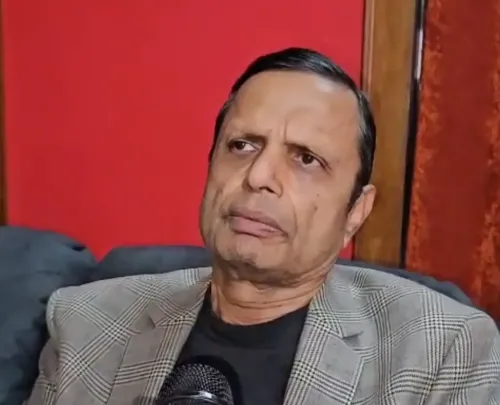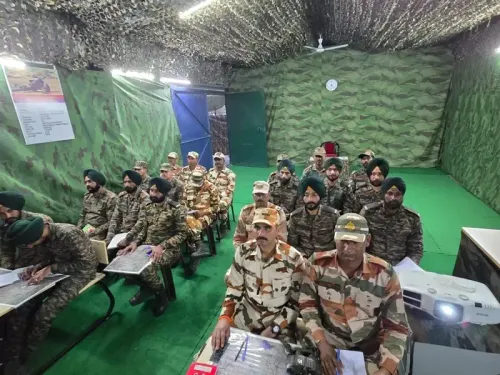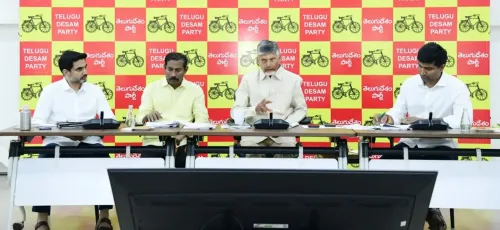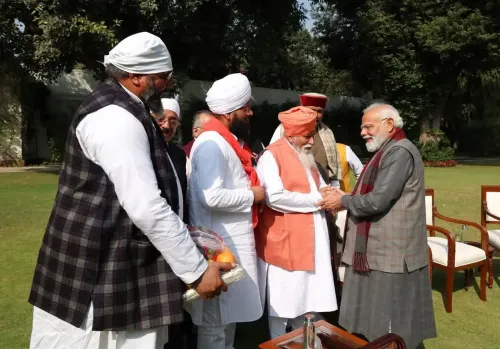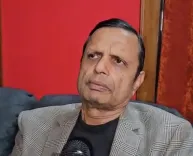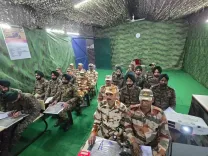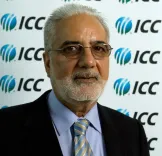Rajasthan's Pioneering Green Budget: 1.25 Lakh New Government Jobs and 1.5 Lakh in Private Sector
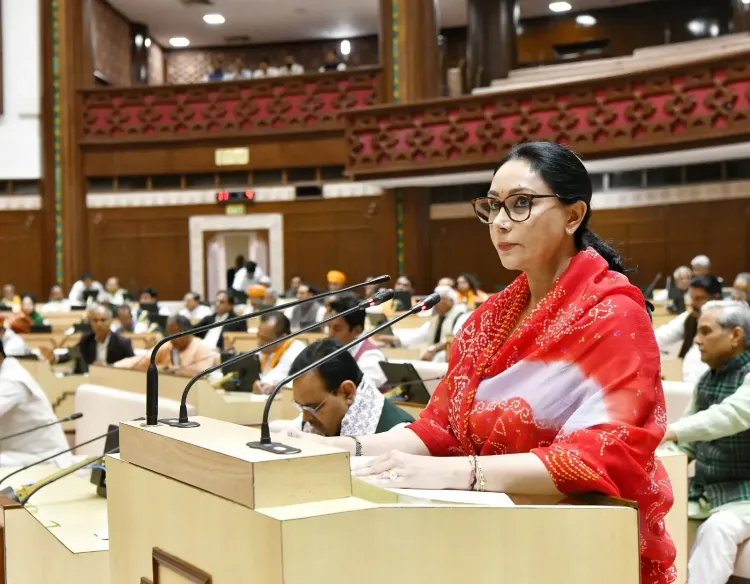
Synopsis
Key Takeaways
- 1.25 lakh new government jobs announced.
- 1.5 lakh new jobs in the private sector.
- Focus on environmental sustainability and infrastructure.
- Introduction of Rajasthan Employment Policy 2025.
- $350 billion economy goal by 2030.
Jaipur, Feb 19 (NationPress) The Deputy Chief Minister of Rajasthan, Diya Kumari, unveiled the second comprehensive budget of the Bhajan Lal administration, heralding it as the inaugural ‘green budget’ with a significant emphasis on climate change adaptation, forests, environment, and biodiversity.
“Our administration is dedicated to youth employment, environmental sustainability, and extensive infrastructure development. This budget aims to establish Rajasthan as a pivotal contributor to India’s economic and green growth,” stated Kumari, who additionally oversees the Finance Ministry.
During her 138-minute address, the Finance Minister outlined Rajasthan’s aspiration to evolve into a $350 billion economy by 2030.
The Finance Minister projected the budget's anticipated revenue receipts to be Rs 2,94,536.49 crore for 2025-26, while the estimated revenue expenditure is anticipated to be Rs 3,25,545 crore.
“The revenue deficit is pegged at Rs 31,009.41 crore, and the fiscal deficit is Rs 84,643 crore, which constitutes 4.25 percent of the Gross State Domestic Product (GSDP),” she noted.
She emphasized the commitment to employment and job growth.
“We have declared 1.25 lakh government job openings for the upcoming year and 1.5 lakh jobs in the private sector. Additionally, we are rolling out the Rajasthan Employment Policy 2025, concentrating on youth employment,” she remarked.
The Finance Minister also revealed reforms in tax and property, introducing a 0.5 percent stamp duty discount on properties valued up to Rs 50 lakh when purchased jointly with a spouse.
Moreover, she announced an increase of the PM Kisan Samman Nidhi scheme to Rs 9,000 per year, effective next year.
Additionally, a new Aero City will be constructed near Kota Airport, and 29 airstrips throughout the state will be upgraded.
For infrastructure and transportation, Rs 250 crore was allocated for the enhancement of Jaipur's traffic system, alongside the removal of the BRTS in Jaipur.
Furthermore, the Finance Minister announced the acquisition of 500 new buses for Rajasthan Roadways under the GCC Model, with Rs 12,000 crore set aside for extending metro services from Sitapura Industrial Area to Ambawadi and Vidyadhar Nagar (Todi Mod).
Over Rs 5,000 crore is allocated for state highways, bypass roads, flyovers, ROBs/RUBs, and Rs 60,000 crore was allocated for the development of 9 GreenField Expressways.
The Finance Minister also proposed numerous ambitious projects within the energy and environment sectors.
She announced that households installing solar plants would receive 150 free electricity units monthly and introduced community solar plants for low-income families, with Rs 250 crore allocated for the Green Aravalli Development Project.
To enhance the energy sector, the Finance Minister announced a production increase of 6,400 MW in 2025-26, along with 50,000 new agriculture connections and five lakh domestic connections.
Water accessibility was a primary focus during the Finance Minister's address, with new water connections announced in 20 lakh households. For industrial and mineral development, the establishment of the Rajasthan Mineral Exploration Company for mineral exploration and a Center of Excellence for Mines and Minerals in Jaipur were announced.
“A Petro Campus will be set up at the Institute of Mines in Udaipur, and MVM University in Jodhpur; the Rajasthan City Gas Distribution Policy will be introduced, providing 1.25 lakh houses with piped gas connections, with production at the Pachpadra Refinery (Barmer) commencing in August,” the Finance Minister stated.
For educational and skill development initiatives, a new Sainik School will be established at Mirjewala, Sri Ganganagar, with additional Sainik Schools for girls to be founded in Alwar, Bikaner, Jaipur, Jaisalmer, and Kota.
“A total of 1,500 Atal Tinkering Labs will be implemented in schools. The launch of the ‘Solar Didi’ initiative, inspired by the Lakhpati Didi and Drone Didi programs, will also be initiated,” the Finance Minister stated.
A Tribal tourist circuit, a new toy park in Kota, stone parks in Nimbahera and Bundi, along with a ceramic park were also proposed.
The Finance Minister announced the creation of 18 new industrial areas within the state budget.
In response to the rise in cybercrime, the announcement of the Sardar Patel Centre for Cyber Control and a war-room with a budget of Rs 350 crore was made.
In a move to provide relief to the public, the existing stamp duty rebates, previously applicable on power of attorney to certain family members, were extended to include daughters-in-law and daughters' children. Additionally, a 0.5 percent reduction in stamp duty was declared on properties worth up to Rs 50 lakhs jointly purchased by spouses. This budget underscores a commitment to youth employment, environmental sustainability, and extensive infrastructure development, reinforcing Rajasthan’s role as a significant player in India’s economic and green growth.


